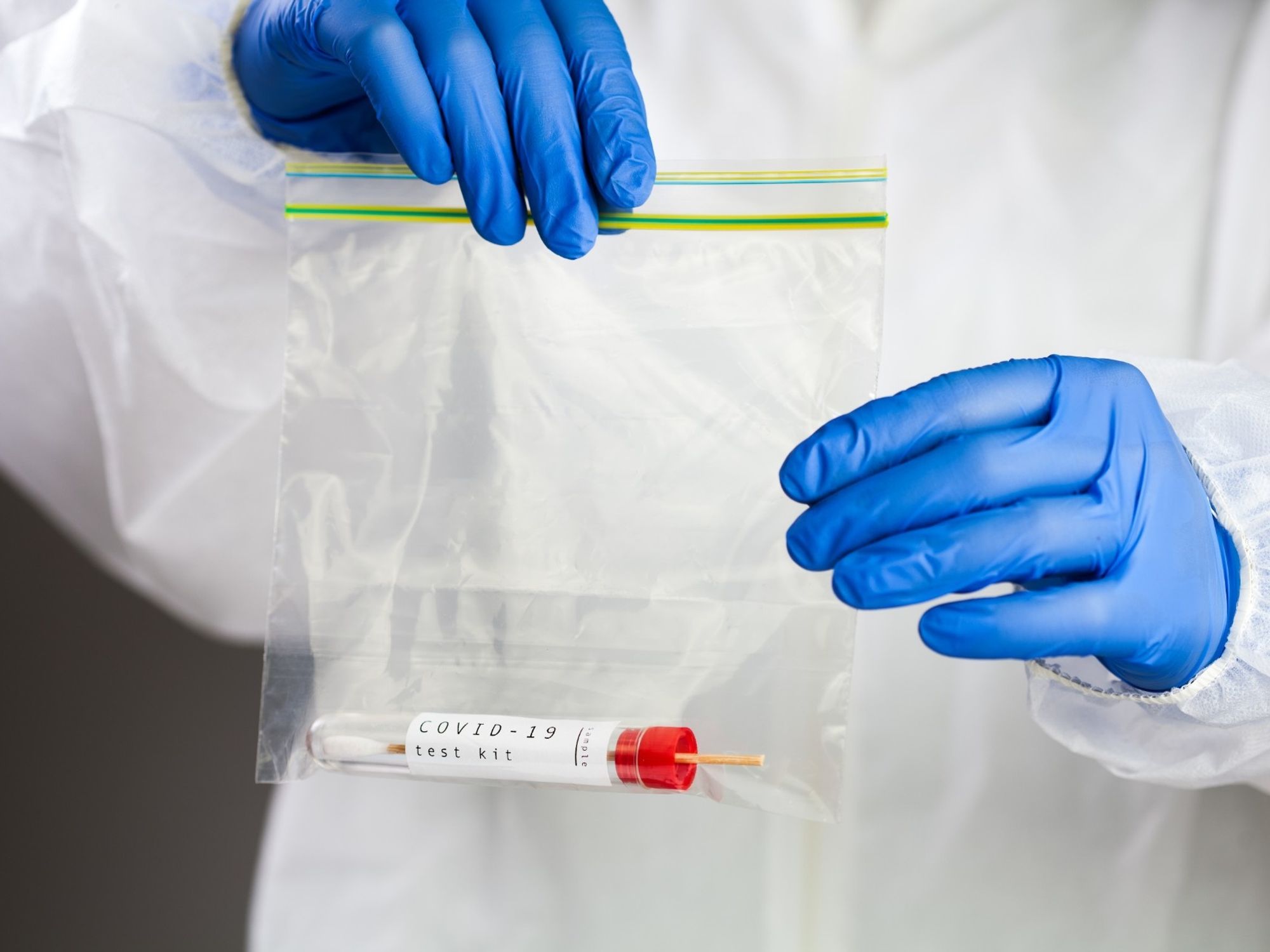Surging Demand For COVID Tests May Require A New Public Health Strategy For California
Keerthi Vedantam is a bioscience reporter at dot.LA. She cut her teeth covering everything from cloud computing to 5G in San Francisco and Seattle. Before she covered tech, Keerthi reported on tribal lands and congressional policy in Washington, D.C. Connect with her on Twitter, Clubhouse (@keerthivedantam) or Signal at 408-470-0776.

Not even a week after the Los Angeles County Department of Public Health announced it would offer residents free mail-in PCR tests for COVID-19, the program has been put on pause.
In another blow for a region crippled by a surge in omicron variant cases, the county’s partner in the program, Temple City-based biotech firm Fulgent Genetics, said it will not accept new orders for PCR testing kits until Jan. 12, citing a backlog in processing them. The delay comes after holiday season travel spurred a huge rise in demand for tests, leading to shortages and creating long wait times at testing centers.
The sudden demand has slowed labs' ability to process PCR tests from California residents within two days, when the data is most useful for individuals and public health experts to slow the spread of the virus. According to state data, the number of PCR tests turned around in one day between Dec. 19 and 25 was 78%—7% lower than the previous week.
“There is a limit for testing for people who need it, which would be people at risk for complications or who have symptoms,” Jeff Klausner, an infectious disease expert and member of the state's coronavirus testing task force, told dot.LA. “Unfortunately the ‘worried well’ are consuming a lot of testing resources.”
Klausner’s sentiment—that PCR tests should be reserved for high-risk groups and those who are symptomatic—is indicative of a gradual change in public health messaging around the pandemic. Officials who previously were highly cautious, encouraging people to stay indoors and get tested frequently, have since shortened quarantine guidelines while still urging people to wear masks and get vaccinated.
That evolution in messaging comes despite California having scaled up its testing infrastructure and on-boarded over 100 commercial, medical, and state-run labs to process hundreds of thousands of PCR swabs per day. Among L.A. County residents aged 12 and over, 85% have received at least one dose of a COVID-19 vaccine. Meanwhile, face coverings remain mandated in most public settings.
Reliance on Rapid Tests
The state’s testing shortage comes as the Biden administration ramps up its plan to send 500 million free, at-home rapid tests to U.S. residents beginning this month, with the goal of alleviating the burden on PCR testing facilities.
But the more unreliable rapid tests may pose their own issues amid the emergence of the omicron variant. Though scientists have identified roughly a dozen COVID variants, omicron is particularly notable in that it has at least 32 mutations and, though not as deadly, is far more transmissible.
“[The virus] becomes more infectious because that's what a virus wants to do,” said Rita Burke, an assistant professor of clinical preventive medicine at USC's Keck School of Medicine. “Once it infects as many people as possible, it doesn't want to kill them because then it stops its own cycle.”
Rapid tests work by taking a sequence of the virus and matching it to the sequence found in a saliva or nasal swab sample. The significant mutations in the omicron variant make it harder for those rapid tests to test for the virus in the early days of an infection.
“When the variant comes out, if people are using tests designed for a different variant, then [the tests] won't be able to detect it,” said Eleazar Eskin, a computer scientist and geneticist at UCLA who helped develop the SwabSeq COVID-19 test. “But it's only a kind of a short-term problem, because the newer versions of any test will take that into account.”
Klausner, the member of the state's coronavirus testing task force, said it’s time to abandon overcautious messaging and to instead save PCR tests for high-risk groups, the people who interact with them, and those who are symptomatic. Public health strategies have traditionally relied on identifying high-risk groups and creating targeted interventions.
“It's critical when there's a new context, such as a new virus or when there's a lot of people who are immune, that we change the strategy,” he said. “To do the same strategy over and over again and expecting new results, that's a sign of insanity.”
- Coronavirus Test Kit Facility Aims to Produce 10K A Day in L.A. - dot ... ›
- FDA Approves DxTerity's At-Home Test - dot.LA ›
- As Omicron Spreads, LA County At-Home COVID Tests - dot.LA ›
Keerthi Vedantam is a bioscience reporter at dot.LA. She cut her teeth covering everything from cloud computing to 5G in San Francisco and Seattle. Before she covered tech, Keerthi reported on tribal lands and congressional policy in Washington, D.C. Connect with her on Twitter, Clubhouse (@keerthivedantam) or Signal at 408-470-0776.





 Image Source: Skyryse
Image Source: Skyryse